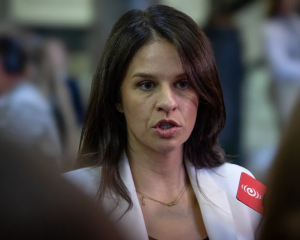That view was put yesterday by Foreign Affairs Minister Murray McCully during his opening address at the University of Otago's 50th annual Foreign Policy School in Dunedin.
Mr McCully said New Zealand had been supported by three-quarters of the UN's 193 member nations in seeking Security Council membership, and will chair the council for a month, starting July 1.
New Zealand will also undertake the month-long role again in September next year.
Mr McCully said New Zealand would bring a ''sense of impatience'' to the council, which had become ''both the architect and the victim of a culture of low expectations''.
Everyone had been conditioned to expect the Security Council to fail, and when it was ''paralysed'' or incapable of acting, ''the world pays a high price'', he said.
Mr McCully explained why New Zealand was focusing on ''one of the world's most intractable challenges, the Middle East peace process''.
New Zealand's term on the council was ''two short years'' and ''we don't want to die wondering'', he added.
New Zealand staunchly supported the existence of the State of Israel and its right to defend that existence, and no progress could be achieved unless Israel's security concerns were ''appropriately accommodated''.
Israelis were concerned about rocket attacks from Gaza, and Palestinians were concerned about continuing construction of Israeli settlements on the West Bank.
But Mr McCully said there were ''solutions to these questions'' and he believed they could be ''arrived at more quickly and easily than most would think''.
His impression from speaking to the respective leaders recently was that '' essentially, they aren't that far apart''.
The time was ''rapidly approaching'' when the council needed to use its ''moral and legal authority'', the practical tools at its disposal, and the ''good offices of the Secretary General'' to promote negotiations.
There was a ''sense of desperation'' from the Palestinians, given that unemployment on the West Bank was ''impossibly high'' and the economy was failing.













